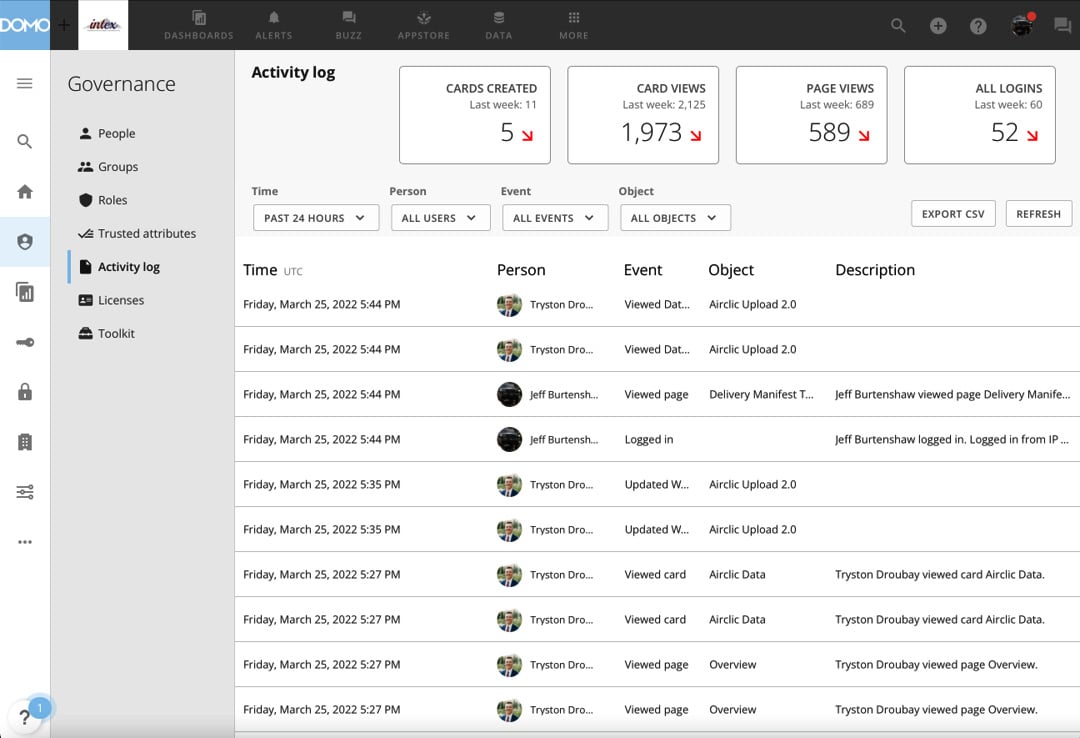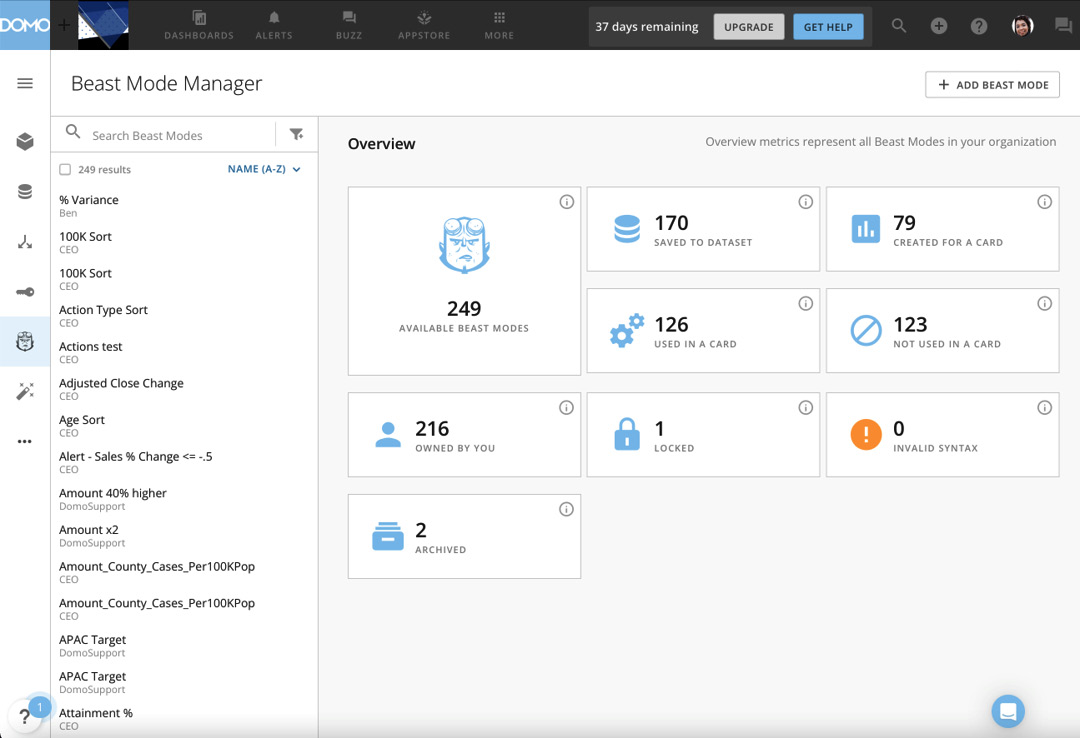Governing, security, and operations
To govern a system, you need to see what artifacts are in the system, who owns the artifacts, who can access the artifacts, and how the artifacts are being used. If you can't track it, then you can't govern it. Let's look at some of the tools enabling governance of the platform.
Tools
The Domo ecosystem has an extensive feature set supporting enterprise governance through all platform layers. A must-have for any MajorDomo Domo system administrator is the Domo Governance Datasets Connector available in the Appstore. This connector app allows you to create datasets with metadata and usage for Beast Mode, cards, pages, datasets, dataflows, users, groups, and more.
Data lineage is tracked from source to consumption, similar to many industries where it is important to understand the chain of delivery, for example, from field to fork.
User and group security roles and privileges are enterprise-grade, including single sign-on and row-level data access controls.
The DomoStats People app can be installed from the Appstore and shows user security and usage patterns.
Domo CourseBuilder is a downloadable app available to create training content. Search for CourseBuilder in the Appstore.
Visual indicators of artifact ownership and access sharing are pervasive, creating trust and facilitating communications.
For the audit-oriented, there is even a detailed activity log, as seen in Figure 1.14:

Figure 1.14 – Activity log
Impact tools for datasets, fields, and Beast Mode are at the ready to prune and standardize the experience, as seen in Figure 1.15:

Figure 1.15 – Beast Mode Manager
Overall, the Domo ecosystem has the enterprise-grade tools to be a trusted and heavily utilized platform.
Next, let's discuss some people and organizational considerations.
People – organizational role design
Domo provides powerful technology, but the appropriate organization of people's responsibilities is also a critical factor in getting the most from the technology. Domo suggests the following roles be assigned in any Domo implementation:
- Executive Sponsor: A business leader who has the budgetary and result accountability for the Domo ecosystem in the organization
- MajorDomo: A person who has overall administrative ownership, driving clear artifact ownership and sharing policies, and is able to synthesize business needs with the Domo ecosystem's capabilities
- Data Specialist: Data architects who have overall responsibility for the data pipelines and data governance in specific subject areas
The following are additional roles that come with large/global organizations:
- Domo Master: A tactical expert on Domo platform features serving in consultative positions to execute business priorities enabled in the ecosystem
- Team Champion: Analytic talent that executes business strategy for a given business area primarily in the present and communicate layers of the ecosystem
That concludes our introduction to the architecture of Domo. Let's recap what we've learned.

































































